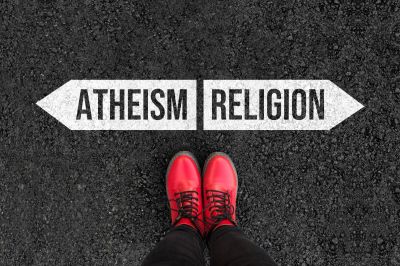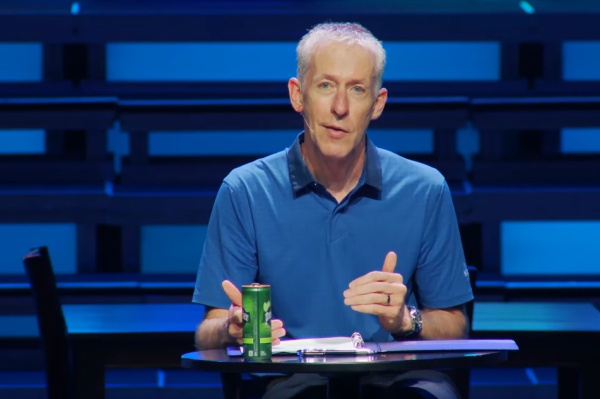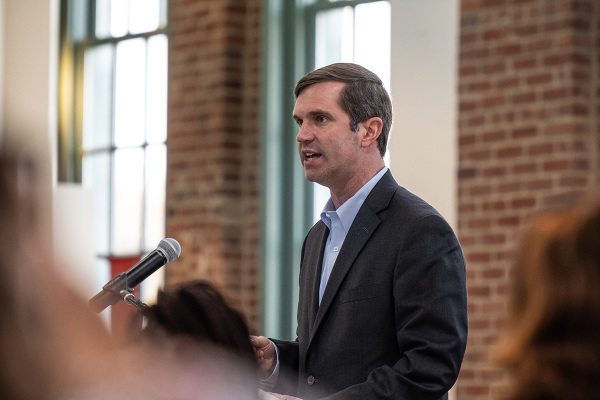Why atheists and Christians should never trust themselves

It is purely natural for man to trust himself. He assumes his ideas and conclusions are reliable. But what about when man gets it wrong? Every day we hear stories of people who misled themselves into making some awful decisions.
Christians and atheists are similar in this sense. People in both groups can be and have been wrong on multiple issues in their personal lives. They advanced positions that turned out to be completely inaccurate or engaged in behavior that is unseemly.
Why do such mistakes happen so frequently? The answer is simple. Atheists rely solely upon their fallible brains, while Christians at times pursue a course that flows from their sinful nature rather than from the Holy Spirit and the Word of God.
Let’s start with atheists. John Lennox is a Northern Irish mathematician, bioethicist and Christian apologist who said in an interview:
“As a scientist, the very bottom line for me is that atheism doesn’t even give me a reason to trust the mind with which I do science because it tells me that the mind with which I’m doing science is essentially equal to the brain. And the brain is the end product of a mindless, unguided process. Well, no scientist I have ever asked would trust a computer if he or she thought it was the end product of a mindless, unguided process. So, there’s a big black hole at the bottom of atheism’s thinking when it comes to science.”
And yet most atheists continue to overlook the irrationality of their approach. You see, it is only reasonable to trust your mind if an intelligent Creator produced it. Otherwise, it is utter foolishness to place full confidence in a brain that simply evolved from a mindless process.
Atheists pick and choose which ideas and outcomes to rely upon and which ideas and outcomes to summarily reject. They assume God does not exist and they reject every supernatural claim. In the end, they stake their immortal soul on a faulty assumption rather than on an intelligent investigation of the facts surrounding the death and resurrection of Jesus Christ. (Check out the blog post by Rachel Boulos titled, “23 Mind-Blowing Facts About Jesus’ Death and Resurrection You Might Not Know.”)
John Lennox stated: “Of course, I reject atheism because I believe Christianity to be true. But I also reject it because I am a scientist. How could I be impressed with a worldview that undermines the very rationality we need to do science? Science and God mix very well. It is science and atheism that do not mix.”
C.S. Lewis observed:
“Supposing there was no intelligence behind the universe, no creative mind. In that case, nobody designed my brain for the purpose of thinking. It is merely that when atoms inside my skull happen, for physical or chemical reasons, to arrange themselves in a certain way, this gives me, as a by-product, the sensation I call thought. But, if so, how can I trust my own thinking to be true? It’s like upsetting a milk jug and hoping that the way it splashes itself will give you a map of London. But if I can’t trust my own thinking, of course I can’t trust the arguments leading to atheism, and therefore have no reason to be an atheist, or anything else. Unless I believe in God, I cannot believe in thought: so, I can never use thought to disbelieve in God.”
Now what about Christians? Why shouldn’t Christians trust themselves?
Well, for one thing, Christians are not holy angels or imperfect human beings. We are flawed and capable of embracing false ideas and wrong behavior. And this is why the Bible instructs believers to place full confidence in God and his Word, rather than in ourselves.
For example, Solomon wrote, “Trust in the Lord with all your heart and lean not on your own understanding. In all your ways acknowledge him, and he will direct your paths” (Proverbs 3:5-6).
And the prophet Jeremiah presented the following insight: “The heart is deceitful above all things and beyond cure. Who can understand it?” (Jeremiah 17:9). God’s message to His children is simple: Don’t trust yourself. Trust in Me, and in my Word.
Why should I trust the Bible? Because it is completely true and trustworthy. “All Scripture is God-breathed,” (2 Timothy 3:16) but not every idea that enters the mind of a believer is worthy of acceptance. And this fact led the Apostle Paul to write, “We take captive every thought to make it obedient to Christ” (2 Corinthians 10:5).
Therefore, don’t believe everything you think.
St. Peter instructed believers: “Above all, you must understand that no prophecy of Scripture came about by the prophet’s own interpretation. For prophecy never had its origin in the will of man, but men spoke from God as they were carried along by the Holy Spirit” (2 Peter 1:20-21).
C.S. Lewis said, “We trust not because 'a god' exists, but because this God exists.” Once you realize that the Father sent His only Son to die for your sins and rise from the dead, it becomes quite easy to trust the love letter God gave us. And once you begin to trust the words of Scripture, your entire life changes and you begin to see many things from God’s perspective.
So, whose outlook do you suppose always lines up with reality? Your own personal opinions or the Creator’s worldview? Your answer to that question will serve as the foundation for the rest of your life on Earth.
Dan Delzell is the pastor of Redeemer Lutheran Church in Papillion, Nebraska.





















